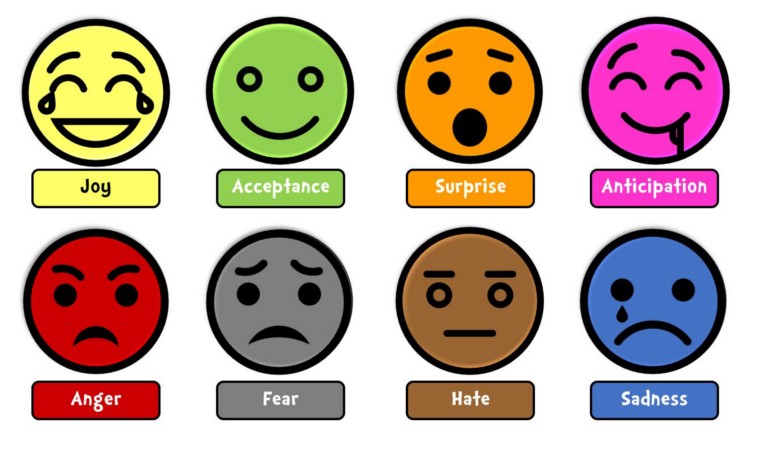
Using emotional verbs in your writing can be a fun and creative way to express the emotions of your characters, or to add flair and drama to your writing. Emotional verbs are those that evoke strong feelings of happiness, sadness, anger, fear, surprise, and more.
By learning how to use these words effectively, you can make your writing stand out from the crowd and create powerful stories that will captivate readers.
To get started with using emotional verbs in your writing, begin by exploring some of the most commonly used ones. For example, try words like “scream” for expressing anger, “sob” for deep sorrow, and “chuckle” for amusement. These words can help emphasize certain scenes and bring them to life on the page. Additionally, it may be helpful to explore different synonyms for each emotion to give yourself options when crafting your sentences.
When incorporating emotional verbs into your writing, remember to use them sparingly. Don’t overdo it, as this can cause your writing to become tedious and repetitive. Instead, focus on selecting words that truly capture the essence of what you’re trying to convey. Doing so will ensure that your readers feel the true depth of emotion throughout your narrative.
With practice and experimentation, you’ll soon develop your own style of using emotional verbs to create compelling stories!
What is an Emotional Verb?
An emotional verb is a type of verb that expresses emotion in the form of an action. This can be anything from anger, joy, sadness, fear, and more. For example, when someone says “I’m laughing,” they are using an emotional verb to express their happiness. Similarly, when someone says “I’m crying,” they are expressing sadness.
Emotional verbs can also be used creatively to express complex emotions. For instance, someone might say “I’m raging” to express intense anger or “I’m soaring” to capture feelings of elation. By combining these types of verbs with other words, it is possible to create vivid descriptions of how one feels. Emotional verbs can help people connect with others and make conversations more meaningful.
111 Powerful Emotional Verbs to Help Improve Your Writing
Still a bit confused? Well, look no further, because we compiled a list of more than 110 awesome emotional verbs to use throughout your writing. From positive emotions to negative, you’ll be covered. And to make things even easier, we organized the verbs in alphabetical order, included their definitions, and even an example sentence for every single verb to help you understand the context.
Abandon – To leave someone or something behind. Ex. “I felt abandoned when my family moved away.”
Abhor – To strongly dislike or detest. Ex. “She abhorred the idea of going to the party.”
Abide – To accept or tolerate a certain situation. Ex. “He had to abide by his parents’ rules.”
Able – To be capable or competent. Ex. “She was able to complete the task with ease.”
Ache – To feel a dull, continuous pain. Ex. “My heart ached when I heard the news.”
Adore – To love or admire someone or something deeply. Ex. “She adored her pet cat.”
Agitate – To stir up strong emotions. Ex. “The speech agitated the crowd.”
Agonize – To suffer intense mental or physical pain. Ex. “She agonized over her decision.”
Alarm – To fill with fear or dread. Ex. “The loud noise alarmed the children.”
Amaze – To fill with wonder or astonishment. Ex. “The magic show amazed the audience.”
Anger – To fill with rage or resentment. Ex. “The injustice angered him.”
Annoy – To cause feelings of mild displeasure. Ex. “Her constant chatter annoyed me.”
Anticipate – To look forward to something with excitement. Ex. “She anticipated her vacation with joy.”
Appall – To shock or dismay. Ex. “The violence appalled the audience.”
Appreciate – To be grateful for something. Ex. “She appreciated his kind gesture.”
Apprehensive – To be worried or uneasy. Ex. “The students were apprehensive about the test.”
Astonish – To amaze or surprise. Ex. “The performance astonished the crowd.”
Awe – To be filled with admiration and respect. Ex. “His bravery inspired awe in everyone.”
Baffle – To be bewildered or perplexed. Ex. “The math problem baffled her.”
Bemoan – To regret or lament. Ex. “He bemoaned his mistake.”
Berate – To scold or criticize harshly. Ex. “She berated her daughter for her bad behavior.”
Bewilder – To confuse or perplex. Ex. “The complex instructions bewildered him.”
Bliss – To experience extreme joy or delight. Ex. “She felt bliss when she saw her new puppy.”
Brood – To be in a state of deep thought. Ex. “He brooded over his decision all day.”
Calm – To restore a sense of peace or tranquility. Ex. “The music calmed her nerves.”
Cheer – To be in a joyous mood; to applaud enthusiastically. Ex, “We cheered the team on after their win”
Chide – To scold or reprimand. Ex. “She chided her brother for his careless mistake.”
Clutch – To grasp tightly in a state of fear. Ex. “He clutched the railing when he saw the snake.”
Coddle – To treat someone with excessive care and kindness. Ex. “My mom always coddled me.”
Commiserate – To sympathize with someone in their suffering. Ex. “We commiserated over our failed attempts.”
Compassion – To feel compassion or pity for someone’s misfortune. Ex. “Her story filled me with compassion.”
Confide – To share secrets or personal information. Ex. “She confided in him about her struggles.”
Congratulate – To express approval and praise for an accomplishment. Ex. “We congratulated her on her success.”
Contempt – To feel disdain or disrespect for someone or something. Ex. “He had contempt for their beliefs.”
Contrite – To be filled with feelings of guilt. Ex. “She was contrite after realizing her mistake.”
Courage – To have the strength to face fear or danger. Ex. “He had the courage to stand up for his beliefs.”
Cower – To shrink away from fear or terror. Ex. “The loud noise made them cower in fear.”
Craving – To long intensely for something. Ex. “She had a craving for chocolate ice cream.”
Despair – To lose all hope. Ex. “His despair kept him from getting out of bed.”
Desperate – To feel extreme hopelessness. Ex. “She was desperate for help.”
Despise – To strongly dislike or hold in contempt. Ex. “He despised his job.”
Devastate – To fill with immense grief or sorrow. Ex. “The news devastated her.”
Dismay – To fill with fear, worry or distress. Ex. “His sudden departure dismayed us.”
Distress – To cause mental or emotional suffering. Ex. “She was in distress after the accident.”
Eager – To be keenly enthusiastic or excited. Ex. “He was eager to start his new job.”
Elated – To feel intense joy and happiness. Ex. “She was elated when she heard the good news.”
Enamored – To have a great fondness for someone or something. Ex. “The boy was enamored by the girl”
Encourage – To give someone hope, inspiration or confidence. Ex. “We encouraged him to pursue his dream.”
Enervate – To make weak or exhausted. Ex. “The long hike enervated me.”
Enrage – To fill with uncontrollable anger. Ex. “Her lies enraged him.”
Enthrall – To captivate or fascinate. Ex. “The story enthralled them all.”
Envy – To desire something that belongs to another. Ex. “I envied her new car.”
Epiphany – To have a sudden, profound realization. Ex. “She had an epiphany about her life choices.”
Exasperation – To fill with annoyance or frustration. Ex. “Her constant complaining exasperated us all.”
Excite – To stir up feelings of enthusiasm or eagerness. Ex. “The concert excited the crowd.”
Fear – To be filled with terror or dread. Ex. “He feared for his safety in the dark alley.”
Fervor – To feel intense passion and excitement. Ex. “She spoke with great fervor.”
Fondness – To have warm affection for someone or something. Ex. “He had a fondness for animals.”
Forlorn – To feel sorrowful, desolate or abandoned. Ex. “She was forlorn after losing her job.”
Frighten – To cause fear or alarm. Ex. “The loud noise frightened the children.”
Frustration – To feel angry and impatient from not being able to do something. Ex. “He felt frustrated by his lack of progress.”
Grieve – To experience deep sadness over the loss of someone or something. Ex. “I grieved for days after the death of my pet.”
Gratification – To feel pleasure or satisfaction. Ex. “She felt great gratification when she heard the news.”
Grieve – To experience deep sadness over the loss of someone or something. Ex. “I grieved for days after the death of my pet.”
Happiness – To feel joy and contentment. Ex. “Her success brought her much happiness.”
Hatred – To have intense dislike or aversion towards someone or something. Ex. “He had a hatred for his rival.”
Heartache – To feel emotional pain or distress. Ex. “The breakup caused him heartache.”
Horror – To fill with terror or dread. Ex. “The horror movie frightened the audience.”
Humiliation – To feel embarrassed and ashamed. Ex. “His mistake caused him humiliation.”
Hysteria – To be overwhelmed by strong emotion. Ex. “The crowd was in a state of hysteria.”
Indifference – To feel unconcerned or disinterested. Ex. “She showed indifference to the situation.”
Infatuation – To feel an intense, often short-lived, passion. Ex. “He was infatuated with her beauty.”
Insecurity – To feel uncertain or apprehensive. Ex. “She had feelings of insecurity about the future.”
Jealousy – To feel resentment towards someone’s success, possessions or relationships. Ex. “He felt a pang of jealousy when he saw his friend’s new car.”
Joy – To experience deep happiness and pleasure. Ex. “The good news filled them with joy.”
Loathe – To have strong dislike for something. Ex. “I loathed that class in school.”
Longing – To desire intensely for something. Ex. “She had a longing to travel the world.”
Love – To be deeply committed to another person emotionally and romantically. Ex. “They shared a profound love.”
Melancholy – To feel sadness or depression. Ex. “Her melancholy was evident in her voice.”
Mourn – To grieve or express sorrow over a loss. Ex. “We mourned the passing of our beloved teacher.”
Nervousness – To feel anxious or uneasy. Ex. “His nervousness showed during the interview.”
Outrage – To fill with intense anger or indignation. Ex. “The injustice outraged him.”
Panic – To feel extreme fear or terror. Ex. “The fire caused panic among the crowd.”
Paranoia – To be suspicious of others without good reason. Ex. “He had paranoid thoughts about his friends.”
Passion – To have strong enthusiasm, excitement and emotion. Ex. “She spoke with great passion on the issue.”
Patience – To endure a situation without becoming irritated. Ex. “He showed patience when waiting in line.”
Peaceful – To experience tranquility and calmness. Ex. “The forest was peaceful and serene.”
Perplexed – To be bewildered or confused. Ex. “She was perplexed by the problem.”
Pride – To take pleasure or satisfaction in one’s achievements. Ex. “She felt pride after completing her project.”
Rage – To fill with uncontrollable anger. Ex. “His sudden outburst filled the room with rage.”
Regret – To feel sorrow for something done wrong. Ex. “She regretted not taking the opportunity.”
Relief – To feel free from worry or distress. Ex. “Her relief was evident when she heard the news.”
Remorse – To feel deep guilt or regret. Ex. “He felt remorse for his actions.”
Resentment – To feel bitterness or indignation. Ex. “She had resentment towards her boss.”
Sadness – To experience a deep sense of sorrow. Ex. “Her sadness was evident in her voice.”
Satisfaction – To be pleased or content with something. Ex. “She took satisfaction in her accomplishment.”
Scorn – To have contempt or disdain for someone or something. Ex. “He showed scorn for the idea.”
Shame – To feel embarrassed or humiliated. Ex. “His mistake made him feel ashamed.”
Shock – To fill with surprise or amazement. Ex. “The news shocked us all.”
Sorrow – To feel deep grief and unhappiness. Ex. “She experienced great sorrow after the loss”
Sympathy – To feel compassion or pity for someone’s misfortune. Ex. “We expressed our sympathy for his loss.”
Tenderness – To feel warmth, gentleness and affection. Ex. “The mother showed tenderness when she hugged her child.”
Terror – To feel intense fear or dread. Ex. “The horror movie filled me with terror.”
Thrill – To experience intense excitement. Ex. “The roller coaster gave me a thrill.”
Torment – To cause great mental or physical distress. Ex. “His constant teasing tormented her.”
Trust – To have faith in someone or something. Ex. “He trusted her with his secret.”
Uneasiness – To feel anxious and apprehensive. Ex. “The storm caused uneasiness among the crowd.”
Vengeance – To desire to get revenge for an injustice. Ex. “She sought vengeance against her enemies.”
Weary – To feel physically and mentally exhausted. Ex. “The long hike made us all weary.”
Wonder – To feel curiosity, admiration or amazement. Ex. “We were filled with wonder at the sight of the pyramids.”
Zeal – To be eager and enthusiastic. Ex. “He had great zeal for the project.”
Takeaway
I hoped this huge list of verbs expressing emotion helped you in your writing project, whatever form it took. If you want to learn even more, or perhaps how to intuitively avoid lists like this in the future, learn about the 27 emotions currently understood by scientists.
Or, perhaps even better, try this nifty little tool called Plutchik’s Wheel of Emotions!




